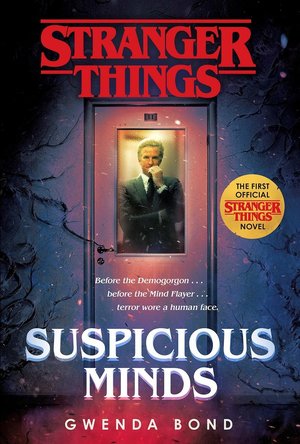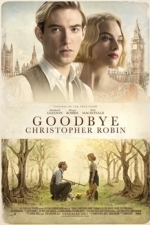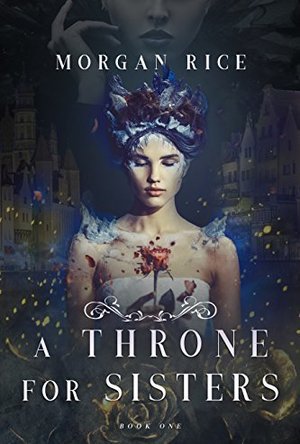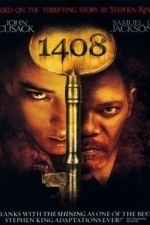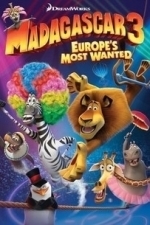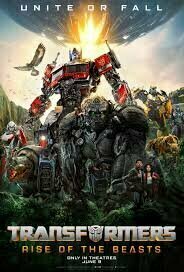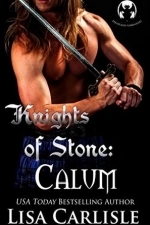Search
Search results

No Shame (No Shame #4)
Book
(This is NOT a stand alone novel. See end of this description for details) Brad feels nothing but...
M_M Contemporary Romance
Hadley (567 KP) rated Stranger Things: Suspicious Minds in Books
Jun 10, 2019
The first novel adapted from the Netflix series hit 'Stranger Things' is an astonishing work of art. Viewers of the show may be familiar with Eleven's mother, Terry Ives, which this book surrounds. Along for the ride are a few important characters that weren't mentioned in the series: Alice, Gloria and Ken - a self proclaimed psychic - all of which meet because they signed up for a human experiment at Hawkins National Laboratory, where each are given doses of LSD every week. This quickly tells readers that the book is not recommended for anyone under the age of 14.
Although the series has more than one book, and no end in sight, Bond was only chosen to do this novel. 'Suspicious Minds' is categorized under Young Adult books, but with the heavy Vietnam content, it's not considered that many young adults today can actually relate with this story or even understand the devastating effects of a looming draft hanging over the heads of young men throughout America in the 1960's. But Bond does a wonderful job in relating the emotional state of this era through our main character, Terry. Another subject that Bond does a fantastic job of explaining in 'Suspicious Minds' is the taboo of being a pregnant, unwed mother in this era, something that seems to be making headlines again in the States nearly 60 years later.
Bond shows us a young Dr. Martin Brenner, with neatly styled brown hair and an almost unlined face, as well as a more lively Terry Ives (which only season 2 has shown a very short flashback sequence of Terry being mobile before her dreaded consequence from being associated with the human experiments). We find out that the reason Terry volunteered for the experiment is due to her father's service in WWII, and wanting to make the world a better place. Bond brings in the other important characters, who also volunteered for the experiments, quickly bonding the four as friends for life.
As far as characters go, these four are written very well. Although Terry is the main character of 'Suspicious Minds,' we get to see from the viewpoints of all people, including Brenner. Bond gives the reader a short background on what LSD is and where it came from when the time comes for the experiments to begin. Brenner doesn't really explain why he gives LSD to the volunteers, but only that it is part of a secret experiment. Even when Terry is placed in a sensory deprivation tank, he doesn't reveal anything to her, and Bond does a great job of keeping the characters enough in the grey area of knowing that it's believable. Even at one point, when Terry begins to suspect something strange from the experiments, she keeps the belief that whatever is going on at Hawkins Laboratory must be important: " 'But you can't see it's important?' Terry leaned in close, and they kept their voices down as other students walked past. 'They just called up the school and told them to give me Thursdays off and I'm getting credit for it? They're tying our grades to doing this. And no one asked any questions. They just agreed. I have to keep going.' " Bond eloquently keeps the mystery going.
This mystery is even interesting to those who know what happens in the end. In 'Stranger Things,' Terry is introduced as a comatose woman in a rocking chair- who happens to be Eleven's mother. We have never met Gloria, Alice or Ken. The three become very close to Terry, and they all somehow escape from Brenner's grasp, but they also end up joining in Terry's pursuit of getting Eleven/Jane back to her mother. Fans of the show might be left asking what happened to these three enjoyable characters? I haven't seen any plans for a part two of this story, so we may be left not knowing what happened or if the three are even still alive today (in the Stranger Things' era). Even more enjoyable is the random use of J.R.R. Tolkien's 'The Lord of the Rings,' where in one scene, Alice and Terry decide to name their small group 'The Fellowship of the Lab.' Any veteran reader will be happy to see a classic brought up in a newer book of today.
And also of interest, fans will recognize a little girl who is frequent throughout the story: Eight a.k.a. Kali. We never get to see through Kali's perspective, but the reader does get to see the multitude of her abilities. For instance, Kali is able to scare personnel in the lab by causing the hallucination of tidal waves inside the building, only to stop when Brenner (or Papa to her) gives her her favorite sweet: Hostess cakes. Other than that, Kali is like any child; she throws tantrums and rebels from her Papa, sometimes to the laughter of the reader.
One point, Terry even meets with Kali in her LSD induced state: " Terry shook her head. 'There can be. He's just a man. He can't know everything.' She paused. 'Does he hurt you? Papa?' Kali frowned, but she didn't answer. 'If he does... I can help you.' Terry had to make her understand. The little girl shook her head. 'I don't think so. I might be able to help you, though.' A field of yellow sunflowers grew up around them. A rainbow arcing over the golden tops." Terry, understandably, begins to scheme about how they can help Kali to escape the lab.
Bond does a great job of transitioning between Terry's point of view to the other characters' viewpoints. We get a young woman named Gloria, who has a secret obsession with comic books (especially X-Men). A hippie-looking man named Ken, who claims he is psychic, but just happens to have a lot of hunches that come true. And last, but not least, another young woman named Alice, who shows up in grease covered overalls and curly black hair, explaining that she works for her uncle's garage and that she loves machines. These three are delightful to read about, and the story would be boring without them.
This book was the perfect novel to answer questions fans may have had about Eleven's mother. Bond writes smoothly and easily enough that you may find yourself wanting to read just one more page before setting the book down for the evening. She drags you into the world of the 1960's and helps young readers to feel the emotional time that it was for women like Terry. But with only a few inconsistencies here and there, 'Suspicious Minds' leaves us wanting more. If you are a fan of 'Stranger Things,' I say that this is a must-read! Highly recommend!
Although the series has more than one book, and no end in sight, Bond was only chosen to do this novel. 'Suspicious Minds' is categorized under Young Adult books, but with the heavy Vietnam content, it's not considered that many young adults today can actually relate with this story or even understand the devastating effects of a looming draft hanging over the heads of young men throughout America in the 1960's. But Bond does a wonderful job in relating the emotional state of this era through our main character, Terry. Another subject that Bond does a fantastic job of explaining in 'Suspicious Minds' is the taboo of being a pregnant, unwed mother in this era, something that seems to be making headlines again in the States nearly 60 years later.
Bond shows us a young Dr. Martin Brenner, with neatly styled brown hair and an almost unlined face, as well as a more lively Terry Ives (which only season 2 has shown a very short flashback sequence of Terry being mobile before her dreaded consequence from being associated with the human experiments). We find out that the reason Terry volunteered for the experiment is due to her father's service in WWII, and wanting to make the world a better place. Bond brings in the other important characters, who also volunteered for the experiments, quickly bonding the four as friends for life.
As far as characters go, these four are written very well. Although Terry is the main character of 'Suspicious Minds,' we get to see from the viewpoints of all people, including Brenner. Bond gives the reader a short background on what LSD is and where it came from when the time comes for the experiments to begin. Brenner doesn't really explain why he gives LSD to the volunteers, but only that it is part of a secret experiment. Even when Terry is placed in a sensory deprivation tank, he doesn't reveal anything to her, and Bond does a great job of keeping the characters enough in the grey area of knowing that it's believable. Even at one point, when Terry begins to suspect something strange from the experiments, she keeps the belief that whatever is going on at Hawkins Laboratory must be important: " 'But you can't see it's important?' Terry leaned in close, and they kept their voices down as other students walked past. 'They just called up the school and told them to give me Thursdays off and I'm getting credit for it? They're tying our grades to doing this. And no one asked any questions. They just agreed. I have to keep going.' " Bond eloquently keeps the mystery going.
This mystery is even interesting to those who know what happens in the end. In 'Stranger Things,' Terry is introduced as a comatose woman in a rocking chair- who happens to be Eleven's mother. We have never met Gloria, Alice or Ken. The three become very close to Terry, and they all somehow escape from Brenner's grasp, but they also end up joining in Terry's pursuit of getting Eleven/Jane back to her mother. Fans of the show might be left asking what happened to these three enjoyable characters? I haven't seen any plans for a part two of this story, so we may be left not knowing what happened or if the three are even still alive today (in the Stranger Things' era). Even more enjoyable is the random use of J.R.R. Tolkien's 'The Lord of the Rings,' where in one scene, Alice and Terry decide to name their small group 'The Fellowship of the Lab.' Any veteran reader will be happy to see a classic brought up in a newer book of today.
And also of interest, fans will recognize a little girl who is frequent throughout the story: Eight a.k.a. Kali. We never get to see through Kali's perspective, but the reader does get to see the multitude of her abilities. For instance, Kali is able to scare personnel in the lab by causing the hallucination of tidal waves inside the building, only to stop when Brenner (or Papa to her) gives her her favorite sweet: Hostess cakes. Other than that, Kali is like any child; she throws tantrums and rebels from her Papa, sometimes to the laughter of the reader.
One point, Terry even meets with Kali in her LSD induced state: " Terry shook her head. 'There can be. He's just a man. He can't know everything.' She paused. 'Does he hurt you? Papa?' Kali frowned, but she didn't answer. 'If he does... I can help you.' Terry had to make her understand. The little girl shook her head. 'I don't think so. I might be able to help you, though.' A field of yellow sunflowers grew up around them. A rainbow arcing over the golden tops." Terry, understandably, begins to scheme about how they can help Kali to escape the lab.
Bond does a great job of transitioning between Terry's point of view to the other characters' viewpoints. We get a young woman named Gloria, who has a secret obsession with comic books (especially X-Men). A hippie-looking man named Ken, who claims he is psychic, but just happens to have a lot of hunches that come true. And last, but not least, another young woman named Alice, who shows up in grease covered overalls and curly black hair, explaining that she works for her uncle's garage and that she loves machines. These three are delightful to read about, and the story would be boring without them.
This book was the perfect novel to answer questions fans may have had about Eleven's mother. Bond writes smoothly and easily enough that you may find yourself wanting to read just one more page before setting the book down for the evening. She drags you into the world of the 1960's and helps young readers to feel the emotional time that it was for women like Terry. But with only a few inconsistencies here and there, 'Suspicious Minds' leaves us wanting more. If you are a fan of 'Stranger Things,' I say that this is a must-read! Highly recommend!
Lee (2222 KP) rated Goodbye Christopher Robin (2017) in Movies
Oct 2, 2017
My wife has the entire collection of Winnie the Pooh stories by A.A. Milne, featuring the illustrations by E.H. Shepherd, but they're not something I've ever actually read. I'm probably more familiar with the illustrations than the stories themselves and the fact that Christopher Robin was real, along with the stuffed toys that eventually became the characters and friends we all know and love. But I had no idea that the real Christopher Robin actually grew to hate being Christopher Robin and how much of a negative impact his fathers work had on his early years. Goodbye Christopher Robin tells us that story.
We begin with a brief scene of despair following the receipt of a telegram at the Milne home in 1941. Before we have time to fully understand what's going on, we're whisked back to World War I where A.A. Milne (Domhnall Gleeson) is fighting in the trenches. Following the war, Milne (or "Blue" to his friends) tries to live out a normal life in London, working as a writer with wife Daphne (Margot Robbie) and their young son Christopher Robin. Unfortunately though, Milne suffers from post-traumatic stress disorder, meaning that the bright lights and loud noises of London regularly take him back to the horrors of World War I and begin to effect his life and his work. Deciding to move his family to a farmhouse in Sussex, Milne hopes that the peace and quiet of the countryside will allow him to concentrate on getting back into his writing.
As he struggles to write the book he wants to write, Daphne heads back to London, promising only to return when he begins writing again. At the same time, beloved nanny Olive (Kelly Macdonald) takes time off to look after her mother, meaning that Milne must finally spend some time with Christopher Robin, getting to know his son and enjoying time together in the large woods surrounding their home. It's a slow process though, with the occasional PTSD trigger affecting the already strained father-son relationship, but they soon begin fleshing out stories, characters and habitats for what will become Winnie the Pooh and friends. When Milne invites his friend E.H. Shepherd down to start sketching the woodland and Christopher Robin at play, things really begin to take shape and it's not long before Milne has published his Winnie the Pooh stories. And they're an instant hit.
To the disappoint of A.A. Milne, much of the books attention is focused towards Christopher Robin who is immediately thrust into the limelight. Forced to endure endless photo-shoots and interviews, participating in a tea party with children who have won a competition and being constantly hounded by the press. His parents revel in the success thought, not really acknowledging the effect it's all having on their young son while they swan off to parties and holidays leaving the nanny to look after Christopher Robin and his increasingly busy schedule. Even a telephone call home from Milne to Christopher Robin to see how he is turns out to be part of a radio broadcast. He feels his life isn't his own anymore, and that Christopher Robin is just a character in a book. Even when he heads off to boarding school, he cannot escape the curse of Christopher Robin and is constantly bullied because of it.
It's thanks to the amazing cast, particularly Gleeson and newcomer Will Tilston, that all of this works so well. Building to a highly emotional ending (yeah, I cried!), Goodbye Christopher Robin is a wonderfully touching story. Emotional and hugely enjoyable.
We begin with a brief scene of despair following the receipt of a telegram at the Milne home in 1941. Before we have time to fully understand what's going on, we're whisked back to World War I where A.A. Milne (Domhnall Gleeson) is fighting in the trenches. Following the war, Milne (or "Blue" to his friends) tries to live out a normal life in London, working as a writer with wife Daphne (Margot Robbie) and their young son Christopher Robin. Unfortunately though, Milne suffers from post-traumatic stress disorder, meaning that the bright lights and loud noises of London regularly take him back to the horrors of World War I and begin to effect his life and his work. Deciding to move his family to a farmhouse in Sussex, Milne hopes that the peace and quiet of the countryside will allow him to concentrate on getting back into his writing.
As he struggles to write the book he wants to write, Daphne heads back to London, promising only to return when he begins writing again. At the same time, beloved nanny Olive (Kelly Macdonald) takes time off to look after her mother, meaning that Milne must finally spend some time with Christopher Robin, getting to know his son and enjoying time together in the large woods surrounding their home. It's a slow process though, with the occasional PTSD trigger affecting the already strained father-son relationship, but they soon begin fleshing out stories, characters and habitats for what will become Winnie the Pooh and friends. When Milne invites his friend E.H. Shepherd down to start sketching the woodland and Christopher Robin at play, things really begin to take shape and it's not long before Milne has published his Winnie the Pooh stories. And they're an instant hit.
To the disappoint of A.A. Milne, much of the books attention is focused towards Christopher Robin who is immediately thrust into the limelight. Forced to endure endless photo-shoots and interviews, participating in a tea party with children who have won a competition and being constantly hounded by the press. His parents revel in the success thought, not really acknowledging the effect it's all having on their young son while they swan off to parties and holidays leaving the nanny to look after Christopher Robin and his increasingly busy schedule. Even a telephone call home from Milne to Christopher Robin to see how he is turns out to be part of a radio broadcast. He feels his life isn't his own anymore, and that Christopher Robin is just a character in a book. Even when he heads off to boarding school, he cannot escape the curse of Christopher Robin and is constantly bullied because of it.
It's thanks to the amazing cast, particularly Gleeson and newcomer Will Tilston, that all of this works so well. Building to a highly emotional ending (yeah, I cried!), Goodbye Christopher Robin is a wonderfully touching story. Emotional and hugely enjoyable.
KittyMiku (138 KP) rated A Throne For Sisters in Books
May 23, 2019
This was a fairly good novel that teaches you that lying can bring you more harm than good, even if it buys you a little happiness. It also teaches you that no matter what, you can't escape those who wish to harm you. Even if the people who do so change. The story was the best to help create the intrigue in the story itself, but it did have a lot of errors that left something to be desired. I have to say the characters were pretty interesting, even if their backgrounds, personalities and such were lacking. An example being the sisters. They were given some distinct personality traits and an ability that made you want to know more about them, yet it hinted at their past making you really wish it would be delved into, so you can understand their situation and their different ways of thinking. I can only hope more will be revealed in the rest of the series, though with how the story is going, makes me wonder if it will ever be touched base again.
Though the novel is written in a way that allows the reader to see what each girl is doing on their own, you can't help but want a better way to see this happen. It really makes things confusing, going from one chapter to the next, knowing you will see what one girls doing this chapter and the other girl next chapter, but it can be hard when trying to make a timeline of the story. If the chapter headers would at least give you a time period so you knew exactly what was going on when, it would definitely had helped. I got the gist it was supposed to be each chapter was happening at the last chapter was, but it drove me insane when I found myself thinking that what this girl was doing might be happening after the girl I just finish reading about. I would have loved a better transition.
I also found, though the book had some good conversations, when they got voiced, that their weren't a lot of conversations going on in the book and the details of the scenery didn't make up for this. I am used to being able to see what the characters are thinking in the middle of conversations, but to not have a whole lot of them was very disappointing. It felt as if the conversations were skipped at times, just giving you a basis of what was discussed, when I would have loved to know more. I understand mundane conversations being skipped, but when the two characters are falling in love, it would be nice to have more conversations, details on the different characters actions, etc. However, none of that happened. Just brief sentences about it.
Though, I will probably read the rest of the series, just to figure out what happens next and because I am a little OCD about finishing series I start, I fear it won't stand up to my standards. With that said, I do think this book would be good for teens. It is fast paced, doesn't dwell on some of the finer details someone like I would enjoy, and had a great idea in the story plot. I would rate this book 2 stars out of 5 stars because of how it was written. I would have definitely loved more and hope in the future books, Rice will give us just that and not skimp out on things that may help the story become deeper and much more fulfilling.
Though the novel is written in a way that allows the reader to see what each girl is doing on their own, you can't help but want a better way to see this happen. It really makes things confusing, going from one chapter to the next, knowing you will see what one girls doing this chapter and the other girl next chapter, but it can be hard when trying to make a timeline of the story. If the chapter headers would at least give you a time period so you knew exactly what was going on when, it would definitely had helped. I got the gist it was supposed to be each chapter was happening at the last chapter was, but it drove me insane when I found myself thinking that what this girl was doing might be happening after the girl I just finish reading about. I would have loved a better transition.
I also found, though the book had some good conversations, when they got voiced, that their weren't a lot of conversations going on in the book and the details of the scenery didn't make up for this. I am used to being able to see what the characters are thinking in the middle of conversations, but to not have a whole lot of them was very disappointing. It felt as if the conversations were skipped at times, just giving you a basis of what was discussed, when I would have loved to know more. I understand mundane conversations being skipped, but when the two characters are falling in love, it would be nice to have more conversations, details on the different characters actions, etc. However, none of that happened. Just brief sentences about it.
Though, I will probably read the rest of the series, just to figure out what happens next and because I am a little OCD about finishing series I start, I fear it won't stand up to my standards. With that said, I do think this book would be good for teens. It is fast paced, doesn't dwell on some of the finer details someone like I would enjoy, and had a great idea in the story plot. I would rate this book 2 stars out of 5 stars because of how it was written. I would have definitely loved more and hope in the future books, Rice will give us just that and not skimp out on things that may help the story become deeper and much more fulfilling.
Gareth von Kallenbach (980 KP) rated 1408 (2007) in Movies
Aug 14, 2019
For writer Mike Enslin (John Cusack), ghosts and the supernatural are simply myths people use to bolster the local economy with tourism dollars. Mike has made a career of evaluating and debunking so called haunted inns, hotels, graveyards, and locales all over the nation.
While his books do well enough for his editors to be happy with his work, and for locales to be included in his next book, Mike lives a life of routine.
One a promising author, Mike abandoned his novels for his haunted travel guides, and a life of hotels and sparsely attended book signings.
While Mike is evaluating the numerous brochures sent to him by prospective topics, he notices a simple hotel post card that features the simple message “Do not stay in room 1408”. Intrigued, Mike attempts to book the room for a review, but is unable to as the room is no longer available to the public.
With the help of his editor and the legal staff, Mike is able to cover the mysterious room 1408 at the Dolphin Hotel in New York.
Upon his arrival, Mike is greeted by the hotel manager Gerald Olin (Samuel L. Jackson), who offers numerous incentives ranging from rare Brandy, to a penthouse suite if Mike will give up his request to stay in 1408.
It is learned that over 50 people have died while staying in that room and that nobody has even been able to last an hour before befalling some horrific tragedy. Mike is convinced that this is all just part of the hype and that Olin is simply trying to scare him off.
Despite the numerous pleads from Olin to reconsider, Mike insists upon staying in the room, and is soon alone in room 1408.
Upon entering the room, Mike finds it to be a cozy and well maintained room. At first nothing seems out of the ordinary, until a couple of bizarre things happen. Mike is at first convinced there is a member of the hotel staff in hiding, who is playing a trick on him, but soon, Mike realizes just how and why 1408 earned its reputation.
What follows is a serious of horrors that Mike is unable to escape from, despite his best efforts, and he must figure out the mystery of 1408 before it kills him.
The film is based on a short story by Stephen King and is one of the better adaptations of the author’s works. Briskly paced at around 90-minutes, the film is careful to setup the characters and locale, but once the bizarre starts, the audience is in for a thrill ride complete with twists, turns, and some bizarre and suspenseful moments.
Cusack does a masterful job of portraying the conflicted Mike, but never lets you lose sympathy for the man, and displays a very effective ability to blend action, horror, emotions, and pathos, as Mike walks a razor thin line between reality and chaos.
It is especially effective given the fact that Cusack has to carry large segments of the film on his own, without any co-stars in much of his scenes.
The film does lose some momentum in the final 20 minutes, but still rebounds nicely to come to an effective and memorable ending without overusing many of the hackneyed horror film staples.
That being said if chills are what you are looking for this summer, then make sure to check into ?”
While his books do well enough for his editors to be happy with his work, and for locales to be included in his next book, Mike lives a life of routine.
One a promising author, Mike abandoned his novels for his haunted travel guides, and a life of hotels and sparsely attended book signings.
While Mike is evaluating the numerous brochures sent to him by prospective topics, he notices a simple hotel post card that features the simple message “Do not stay in room 1408”. Intrigued, Mike attempts to book the room for a review, but is unable to as the room is no longer available to the public.
With the help of his editor and the legal staff, Mike is able to cover the mysterious room 1408 at the Dolphin Hotel in New York.
Upon his arrival, Mike is greeted by the hotel manager Gerald Olin (Samuel L. Jackson), who offers numerous incentives ranging from rare Brandy, to a penthouse suite if Mike will give up his request to stay in 1408.
It is learned that over 50 people have died while staying in that room and that nobody has even been able to last an hour before befalling some horrific tragedy. Mike is convinced that this is all just part of the hype and that Olin is simply trying to scare him off.
Despite the numerous pleads from Olin to reconsider, Mike insists upon staying in the room, and is soon alone in room 1408.
Upon entering the room, Mike finds it to be a cozy and well maintained room. At first nothing seems out of the ordinary, until a couple of bizarre things happen. Mike is at first convinced there is a member of the hotel staff in hiding, who is playing a trick on him, but soon, Mike realizes just how and why 1408 earned its reputation.
What follows is a serious of horrors that Mike is unable to escape from, despite his best efforts, and he must figure out the mystery of 1408 before it kills him.
The film is based on a short story by Stephen King and is one of the better adaptations of the author’s works. Briskly paced at around 90-minutes, the film is careful to setup the characters and locale, but once the bizarre starts, the audience is in for a thrill ride complete with twists, turns, and some bizarre and suspenseful moments.
Cusack does a masterful job of portraying the conflicted Mike, but never lets you lose sympathy for the man, and displays a very effective ability to blend action, horror, emotions, and pathos, as Mike walks a razor thin line between reality and chaos.
It is especially effective given the fact that Cusack has to carry large segments of the film on his own, without any co-stars in much of his scenes.
The film does lose some momentum in the final 20 minutes, but still rebounds nicely to come to an effective and memorable ending without overusing many of the hackneyed horror film staples.
That being said if chills are what you are looking for this summer, then make sure to check into ?”
Gareth von Kallenbach (980 KP) rated Madagascar 3: Europe's Most Wanted (2012) in Movies
Aug 7, 2019
After being shipped from New York to Madagascar and then leaving Madagascar only to end up stranded in Africa, our four favorite zoo animals are back and causing a ruckus once again, but this time in Europe.
Madagascar 3: Europe’s Most Wanted starts off where Madagascar: Escape 2 Africa left off, with Alex the lion(Ben Stiller), Marty the zebra(Chris Rock), Gloria the hippo (Jada Pinkett Smith) and Melman the giraffe (David Schwimmer) are stranded in Africa longing to get back to their beloved zoo in New York City. They realize the only way they will be able to return home is by relying on their super competent penguin buddies who have made their way to Monte Carlo with their chimp powered plane and the loot of jewels and money they squandered upon in Africa during the second movie.
So the quartet of four legged lovable characters along with a few familiar lemurs, King Julien (Sacha Baron Cohen), the self proclaimed King of Madagascar and his assistants Maurice (Cedric the Entertainer) and Mort (Andy Richter), decide to make their way to Monte Carlo, find the penguins, the chimpanzees, and head to New York.
Once the gang arrives in Monte Carlo it doesn’t take long for them to incite panic. Enter Captain Chantal Dubois (Francis McDormand), an impassive, somewhat indestructible animal control officer, who wants nothing more than to add a lion to her already impressive collection of animal heads mounted on her office wall. Due to her relentless pursuit and unconventional hunting techniques the animals are forced to take refuge aboard a circus train where they are welcomed by a simple-minded sea lion named Stefano (Martin Short). Stefano introduces the group to the rest of the animal circus performers and they each demonstrate their amazing tricks. The train is on its way to London and the circus crew hopes their show will garner the attention of a big time U.S. circus promoter looking to bring a show to New York. This was Alex and company’s ticket home! But would they be up to the challenge of putting on the greatest show anyone has ever seen AND evade Dubois who is hot on their tails every step of the way?
The simple storyline of animals wanting to get home has been the common thread in all three Madagascar movies. Dreamworks Animation rarely reaches the emotional expertise of Pixar, but they always manage to create movies that are still very much engaging, humorous and visually stunning. Eric Darnell and Tom McGrath, who directed the first two movies, come together once again and steer clear from the choppy, thrown together sequence of events that have plagued some sequels and trilogies. I truly believe that keeping with the same directoral chemistry plays a big part in this movie’s well-paced and entertaining storyline.
This movie is definitely geared toward the kindergarten and preschool aged audience with much of the action in the movie involving the circus performance and its Cirque du Soleil-type entertainment. Let’s add the 3D component and voila! An amazing, kaleidoscope of lights and pyrotechnics along with wonderful performances of acrobats, seal shot from cannon, high wire dancing giraffe and hippo, and flying penguins. It’s like a box of animal crackers come to life!
Madagascar 3: Europe’s Most Wanted starts off where Madagascar: Escape 2 Africa left off, with Alex the lion(Ben Stiller), Marty the zebra(Chris Rock), Gloria the hippo (Jada Pinkett Smith) and Melman the giraffe (David Schwimmer) are stranded in Africa longing to get back to their beloved zoo in New York City. They realize the only way they will be able to return home is by relying on their super competent penguin buddies who have made their way to Monte Carlo with their chimp powered plane and the loot of jewels and money they squandered upon in Africa during the second movie.
So the quartet of four legged lovable characters along with a few familiar lemurs, King Julien (Sacha Baron Cohen), the self proclaimed King of Madagascar and his assistants Maurice (Cedric the Entertainer) and Mort (Andy Richter), decide to make their way to Monte Carlo, find the penguins, the chimpanzees, and head to New York.
Once the gang arrives in Monte Carlo it doesn’t take long for them to incite panic. Enter Captain Chantal Dubois (Francis McDormand), an impassive, somewhat indestructible animal control officer, who wants nothing more than to add a lion to her already impressive collection of animal heads mounted on her office wall. Due to her relentless pursuit and unconventional hunting techniques the animals are forced to take refuge aboard a circus train where they are welcomed by a simple-minded sea lion named Stefano (Martin Short). Stefano introduces the group to the rest of the animal circus performers and they each demonstrate their amazing tricks. The train is on its way to London and the circus crew hopes their show will garner the attention of a big time U.S. circus promoter looking to bring a show to New York. This was Alex and company’s ticket home! But would they be up to the challenge of putting on the greatest show anyone has ever seen AND evade Dubois who is hot on their tails every step of the way?
The simple storyline of animals wanting to get home has been the common thread in all three Madagascar movies. Dreamworks Animation rarely reaches the emotional expertise of Pixar, but they always manage to create movies that are still very much engaging, humorous and visually stunning. Eric Darnell and Tom McGrath, who directed the first two movies, come together once again and steer clear from the choppy, thrown together sequence of events that have plagued some sequels and trilogies. I truly believe that keeping with the same directoral chemistry plays a big part in this movie’s well-paced and entertaining storyline.
This movie is definitely geared toward the kindergarten and preschool aged audience with much of the action in the movie involving the circus performance and its Cirque du Soleil-type entertainment. Let’s add the 3D component and voila! An amazing, kaleidoscope of lights and pyrotechnics along with wonderful performances of acrobats, seal shot from cannon, high wire dancing giraffe and hippo, and flying penguins. It’s like a box of animal crackers come to life!
Gareth von Kallenbach (980 KP) rated Transformers Rise of the Beasts (2023) in Movies
Jun 6, 2023
The latest in the long-running and popular Transformer series has arrived with “Transformers: Rise of the Beasts”. Taking a cue from the recent “Bumblebee” movie, the movie cleverly serves not only as a prequel but as a platform to introduce a series of stories leading up to the original films.
It is learned that a planet-destroying evil is fixated on obtaining a key that will allow it to travel to any point in the universe to continue its reign of destruction. The animal-based Maximals are able to escape with the key and hide it on Earth where they will also remain in secret as guardians.
Flash forward to 1994 when Noah Diaz (Anthony Ramos), following his stint in the Army is looking to find gainful employment to help his mother as well as his ailing brother. Despite being a wizard with electronics Noah is not considered to be a team player which has hampered his job prospects and leads him to consider criminal activities in an effort to obtain much-needed funds for his brother's medical bills.
In a moment of desperation, Noah attempts to steal a loaded Porsche but finds he is unable to follow through on the act as it is against his moral compass. Unknown to Noah the car is actually an Autobot named Mirage (Pete Davidson), who soon enlists Noah to help them find the key which they have recently detected.
This does not sit well with Optimus Prime (Peter Cullen), who believes that humanity will only act in your best interests and that his crew needs to find the key so that they can return to their war-ravaged, Cybertron.
It is learned that a crafty but perpetually overlooked museum intern named Elena (Dominique Fishback), has accidentally activated the key and in doing so has allowed the evil Scourge (Peter Dinklage), and his minions to zero in on its location as he attempts to obtain the key for his master and is willing to destroy all were in his way.
Noah and Elena soon find themselves paired with their unexpected allies as they race to stop the evil from obtaining both parts of the key and find themselves with some unexpected allies in the form of the Maximals.
What follows is a frantic action-adventure film that cleverly combines humor, action, dazzling visual effects, and a tail that is part Indiana Jones, and Transformers with a surprising amount of humanity.
It would be easy for the human cast the overshadowed by the massive and visually spectacular creations that frequently transform and battle it out across numerous action sequences. However, director Steven Caple Jr. takes advantage of his young talent both of whom are clearly potential stars in the making as they provide a grounding humanity to the film which makes it more than a lavish FX showcase.
The film also has an impressive era-specific soundtrack and a scene near the end that offers up some intriguing and exciting possibilities for the future. "Transformers: Rise of the Beasts" is a highly enjoyable summer action adventure as well as one the more enjoyable films in the franchise and should delight fans of the franchise and has me for the first time in a long time eagerly awaiting what comes next.
4 stars out of 5
It is learned that a planet-destroying evil is fixated on obtaining a key that will allow it to travel to any point in the universe to continue its reign of destruction. The animal-based Maximals are able to escape with the key and hide it on Earth where they will also remain in secret as guardians.
Flash forward to 1994 when Noah Diaz (Anthony Ramos), following his stint in the Army is looking to find gainful employment to help his mother as well as his ailing brother. Despite being a wizard with electronics Noah is not considered to be a team player which has hampered his job prospects and leads him to consider criminal activities in an effort to obtain much-needed funds for his brother's medical bills.
In a moment of desperation, Noah attempts to steal a loaded Porsche but finds he is unable to follow through on the act as it is against his moral compass. Unknown to Noah the car is actually an Autobot named Mirage (Pete Davidson), who soon enlists Noah to help them find the key which they have recently detected.
This does not sit well with Optimus Prime (Peter Cullen), who believes that humanity will only act in your best interests and that his crew needs to find the key so that they can return to their war-ravaged, Cybertron.
It is learned that a crafty but perpetually overlooked museum intern named Elena (Dominique Fishback), has accidentally activated the key and in doing so has allowed the evil Scourge (Peter Dinklage), and his minions to zero in on its location as he attempts to obtain the key for his master and is willing to destroy all were in his way.
Noah and Elena soon find themselves paired with their unexpected allies as they race to stop the evil from obtaining both parts of the key and find themselves with some unexpected allies in the form of the Maximals.
What follows is a frantic action-adventure film that cleverly combines humor, action, dazzling visual effects, and a tail that is part Indiana Jones, and Transformers with a surprising amount of humanity.
It would be easy for the human cast the overshadowed by the massive and visually spectacular creations that frequently transform and battle it out across numerous action sequences. However, director Steven Caple Jr. takes advantage of his young talent both of whom are clearly potential stars in the making as they provide a grounding humanity to the film which makes it more than a lavish FX showcase.
The film also has an impressive era-specific soundtrack and a scene near the end that offers up some intriguing and exciting possibilities for the future. "Transformers: Rise of the Beasts" is a highly enjoyable summer action adventure as well as one the more enjoyable films in the franchise and should delight fans of the franchise and has me for the first time in a long time eagerly awaiting what comes next.
4 stars out of 5
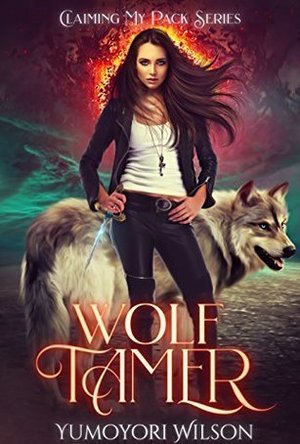
Wolf Tamer (Claiming My Pack #1)
Book
An Orphan Girl. A Group of Wolves. A Destined Fate for War. Don't you ever wish to find where...
Reverse_Harem Paranormal Romance Adult
Merissa (13770 KP) rated Knights of Stone: Calum in Books
Sep 27, 2017
Knights of Stone: Calum (Highland Gargoyles #5) by Lisa Carlisle
Calum is the youngest of the Gargoyle brothers, and along with Gavin, has vowed never to be tied down like his brothers. However, he has been restless of late, and feels the need to fly more often. It is on one of these flights that he encounters a Pegasus and Dragon - neither of which he thought were real. His protective instincts kick in, and he fights the dragon, helping the Pegasus to escape. Once they are both on land, they speak, and Calum finds out that this Pegasus is called Arielle, and she is from a different realm. Now, apart from Bryce, all the brothers have inter-species relationships, but I never thought of an inter-realm one. And poor Calum and Arielle don't think that a long distance relationship like that (where you will never see the other one again) will work. Calum is torn because he wants to help Arielle, but he doesn't want her to leave him.
With good guys, and bad guys, and overprotective mothers, Lisa Carlisle has managed to weave another great story in this series. There is only Gavin left, and I can't wait to read his story, being as no one can see him settling down! With no editing or grammatical errors, there was nothing about this book that caught my attention in a bad way. It was a lovely story, with a smooth pace, and some angst in it for those that don't like a smooth road. All-in-all, a great read and definitely recommended by me.
* A copy of this book was provided to me with no requirements for a review. I voluntarily read this book, and my comments here are my honest opinion. *
Merissa
Archaeolibrarian - I Dig Good Books!
With good guys, and bad guys, and overprotective mothers, Lisa Carlisle has managed to weave another great story in this series. There is only Gavin left, and I can't wait to read his story, being as no one can see him settling down! With no editing or grammatical errors, there was nothing about this book that caught my attention in a bad way. It was a lovely story, with a smooth pace, and some angst in it for those that don't like a smooth road. All-in-all, a great read and definitely recommended by me.
* A copy of this book was provided to me with no requirements for a review. I voluntarily read this book, and my comments here are my honest opinion. *
Merissa
Archaeolibrarian - I Dig Good Books!
Carma (21 KP) rated A Nanny For the Reclusive Billionaire in Books
Jun 17, 2019
Mallory Worthington needs a change of scenery. She is tired of being labeled the sick kid or handle with care. What she needs is an escape from the stigma that a cancer diagnosis brings. She signs up with a temp agency and finds herself flying to Southern Florida to be a nanny to a Billionaire. It is a far cry from being a chef but it might be just what she needs.
Rhys Dalton is reclusive to say the least. Living in Flamingo Key with his son Oliver and a handful of trusted employees is just what he needs after losing his wife 3 years ago. He couldnt protect Beth but he will do whatever it takes to protect Oliver including cutting them off from civilization. Hiring a nanny to help with Olivers needs while he works seems the perfect solution, until Mallory shows up on his doorstep. Werent nannies old and wrinkled with wool dresses?
Mallory and Rhys find themselves needing each other more than they are willing to admit. Together they bring out the best of each other and can offer more live lessons and love to Oliver. But Mallory is reluctant to share her past with Rhys given his personal history with cancer. That can only mean trouble ahead, right?
A Nanny for the Reclusive Billionaire is the first book Ive read by Regina Kyle after meeting her in Cincinnati earlier this year. I am regretting now, not having known about her before because her writing style is wonderful. Believable characters with great storyline flow and humor. If you havent read anything by Ms. Kyle before make this a one click immediately. I voluntarily read an advance copy without expectation for review. Any and all opinions expressed are my own.
Rhys Dalton is reclusive to say the least. Living in Flamingo Key with his son Oliver and a handful of trusted employees is just what he needs after losing his wife 3 years ago. He couldnt protect Beth but he will do whatever it takes to protect Oliver including cutting them off from civilization. Hiring a nanny to help with Olivers needs while he works seems the perfect solution, until Mallory shows up on his doorstep. Werent nannies old and wrinkled with wool dresses?
Mallory and Rhys find themselves needing each other more than they are willing to admit. Together they bring out the best of each other and can offer more live lessons and love to Oliver. But Mallory is reluctant to share her past with Rhys given his personal history with cancer. That can only mean trouble ahead, right?
A Nanny for the Reclusive Billionaire is the first book Ive read by Regina Kyle after meeting her in Cincinnati earlier this year. I am regretting now, not having known about her before because her writing style is wonderful. Believable characters with great storyline flow and humor. If you havent read anything by Ms. Kyle before make this a one click immediately. I voluntarily read an advance copy without expectation for review. Any and all opinions expressed are my own.
